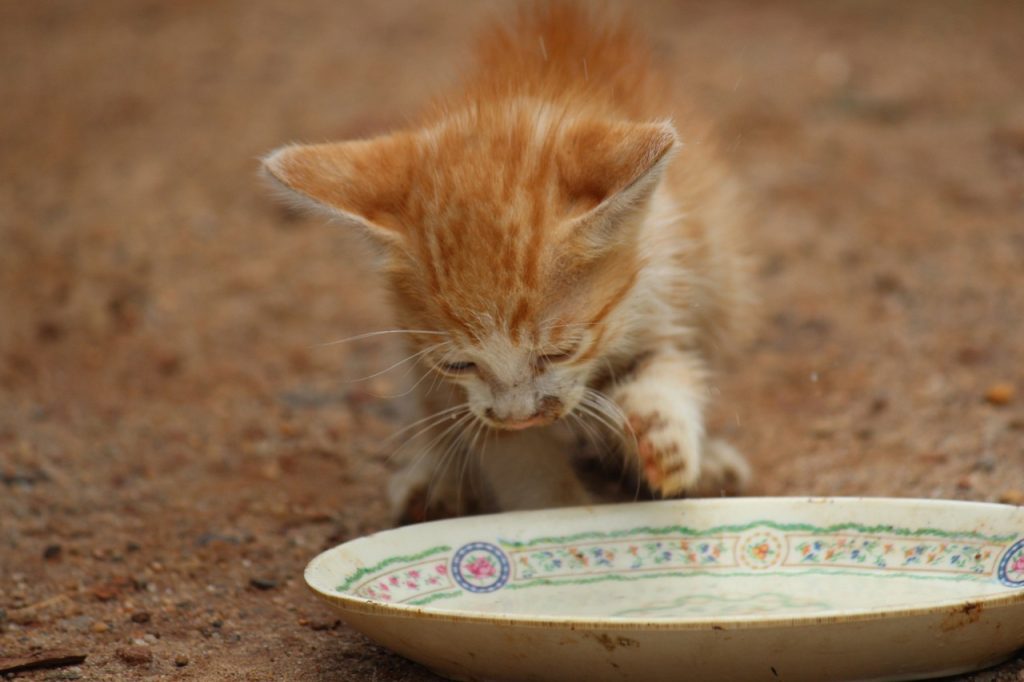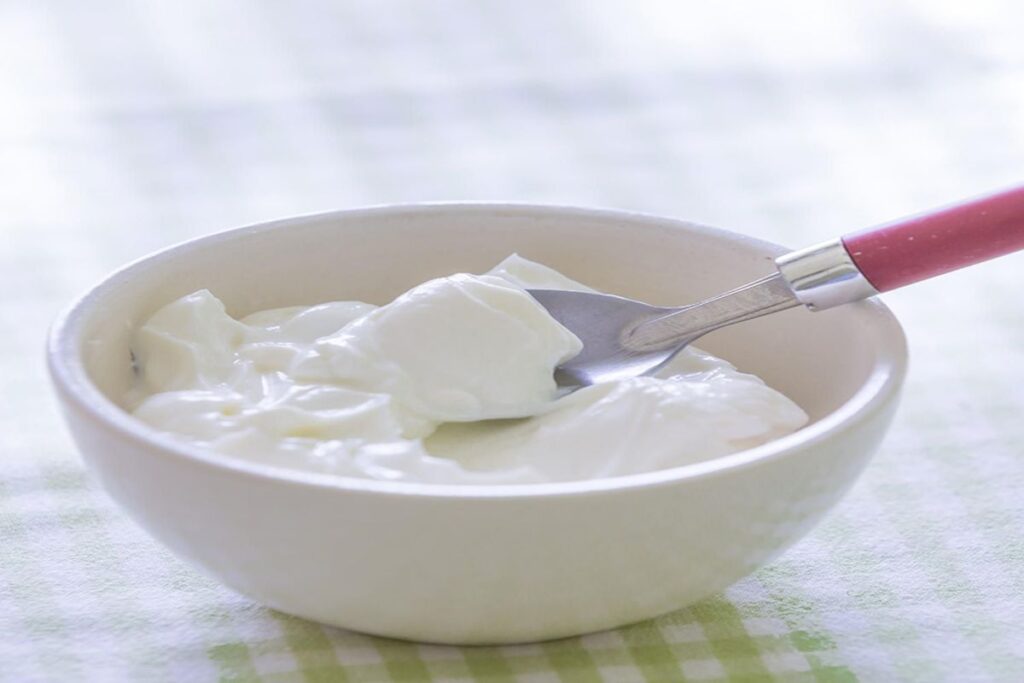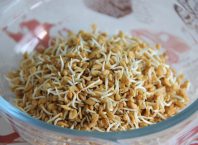Table of Contents
As a pet owner, you want to make sure that your feline friend gets the best nutrition possible. While cats are obligate carnivores and require a diet that’s high in protein, you may be wondering if they can eat other types of food, such as yogurt. After all, yogurt is a dairy product that’s packed with protein and probiotics, which are good for human health. But what about cats? Can cats eat yogurt? In this article, we’ll explore the answer to this question and provide you with a guide to feeding your feline friend.

Can Cats Eat Yogurt?
Can cats eat yogurt? This is a common question among cat owners who want to give their furry friends a treat or supplement their diet with nutritious food. The short answer is yes, cats can eat yogurt, but there are some important things to keep in mind to ensure their safety and well-being.
First and foremost, it’s important to choose plain, unsweetened yogurt. Many commercial yogurts contain added sugar, artificial flavors, and other ingredients that can be harmful to cats. Plain yogurt, on the other hand, is a simple and natural source of probiotics, protein, and calcium that can support your cat’s digestive and immune health.
When introducing yogurt to your cat’s diet, start with a small amount and monitor their response closely. While many cats can tolerate yogurt without issue, some may be lactose intolerant or have other digestive sensitivities. Signs that your cat may not be tolerating yogurt well include vomiting, diarrhea, and stomach discomfort.
The Benefits of Feeding Cats Yogurt
Probiotics
Yogurt contains live active cultures of bacteria that can help improve your cat’s gut health by restoring a healthy balance of beneficial bacteria in its digestive system. This can help prevent issues such as diarrhea, constipation, and inflammatory bowel disease.
Calcium
Yogurt is a good source of calcium, which is important for maintaining strong bones and teeth in cats. This can be especially beneficial for kittens, senior cats, and those with dental issues.
Digestive Health
Yogurt can help improve digestion and nutrient absorption in cats, which can support overall digestive health and may help reduce the risk of certain gastrointestinal issues.
Immune system support
The probiotics in yogurt may also help boost your cat’s immune system by increasing the production of antibodies and white blood cells, which can help protect them from infections and illnesses.
Protein
Yogurt contains protein, which is important for supporting muscle growth and repair in cats. This can be especially beneficial for active cats or those recovering from an injury or illness.
Weight management
Yogurt can be a low-calorie, nutritious snack for cats that can help them feel fuller and more satisfied between meals, which may help support weight management and prevent overeating.
Skin and coat health
The calcium and protein in yogurt can also help support healthy skin and coat in cats, which can reduce the risk of skin issues such as dandruff and promote a shiny, healthy coat.
Taste and variety
Yogurt can be a tasty and nutritious addition to your cat’s diet, providing variety and interest to their meals.
How to Safely Feed Your Cat Yogurt

Choose plain, unsweetened yogurt
Commercial yogurts often contain added sugars, artificial sweeteners, and other ingredients that can be harmful to cats. Choose plain, unsweetened yogurt to avoid any unnecessary additives.
Introduce yogurt gradually
Cats have sensitive digestive systems, so it’s important to introduce yogurt to their diet slowly and in small amounts. Start with a small amount, such as a teaspoon, and gradually increase the amount over time.
Watch for signs of intolerance or allergic reactions
Keep an eye on your cat for any signs of digestive upset or allergic reactions after introducing yogurt to their diet. If your cat experiences any symptoms such as vomiting, diarrhea, itching, or hives, stop feeding them yogurt immediately and consult with your veterinarian.
Limit the amount of yogurt
While yogurt can offer some health benefits for cats, it should not replace their regular diet. Limit your cat’s yogurt intake to no more than 10% of its daily calorie intake to avoid any nutrient imbalances.
Store yogurt properly
Yogurt can contain harmful bacteria such as Salmonella and Listeria, so it’s important to store and handle it properly. Keep yogurt refrigerated and discard any expired or spoiled yogurt.
Consider homemade yogurt
Homemade yogurt can be a safer and more nutritious option for cats, as you can control the ingredients and ensure there are no added sugars or artificial additives. However, it’s important to follow safe food handling practices when making yogurt at home to avoid any contamination.
Consult with your veterinarian
As with any dietary changes, it’s always a good idea to consult with your veterinarian before introducing yogurt to your cat’s diet. Your veterinarian can help determine if yogurt is a safe and appropriate addition to your cat’s diet and provide guidance on how much to feed them.
The Risks of Feeding Cats Yogurt
Lactose intolerance
Many cats are lactose intolerant, which means they lack the enzymes needed to digest lactose, the primary sugar found in milk and dairy products. Feeding your cat yogurt could result in digestive issues such as diarrhea, vomiting, and stomach discomfort.
Allergic reactions
Some cats may be allergic to the proteins found in yogurt, which can cause symptoms such as itching, hives, and even anaphylaxis in severe cases.
Sugar content
Many commercial yogurts contain added sugars, artificial sweeteners, and other ingredients that can be harmful to cats. Feeding your cat sweetened yogurt could contribute to obesity, diabetes, and other health issues.
Bacterial contamination
Yogurt can contain harmful bacteria such as Salmonella and Listeria, which can cause foodborne illness in cats and humans. It’s important to store and handle yogurt properly to reduce the risk of contamination.
Nutrient imbalance
Feeding your cat too much yogurt could contribute to nutrient imbalances in their diet. While yogurt is a good source of calcium and protein, it should not replace your cat’s regular diet, which should consist of a balanced and complete source of nutrition specifically formulated for felines.
Digestive upset
Even if your cat tolerates yogurt well, feeding them too much could result in digestive upset such as diarrhea, vomiting, and stomach discomfort. It’s important to limit your cat’s yogurt intake to no more than 10% of its daily calorie intake.
Dental issues
Feeding your cat yogurt could contribute to dental issues such as tooth decay and gum disease, especially if the yogurt is sweetened or contains added sugars.
FAQs
Q: Can kittens eat yogurt?
A: Kittens should not be fed yogurt. They require a diet that’s specifically formulated for their nutritional needs, and yogurt is not a necessary part of their diet.
Q: Can I give my cat Greek yogurt?
A: Greek yogurt is safe for cats to eat in moderation. However, like all types of yogurt, it’s important to choose plain, unsweetened varieties
How much yogurt can I give my cat?
A: The amount of yogurt you can give your cat depends on their individual needs and tolerance. As a general rule of thumb, you should limit their yogurt intake to no more than 10% of their daily calorie intake.
Q: Can yogurt replace my cat’s regular diet?
A: No, yogurt should not replace your cat’s regular diet. While yogurt can provide some health benefits, it’s not a complete or balanced source of nutrition for cats.
Q: What are some alternative sources of probiotics for cats?
A: If you’re looking for alternative sources of probiotics for your cat, there are several options to consider, including probiotic supplements, fermented vegetables, and certain types of cat food.
Conclusion
In conclusion, cats can eat yogurt in moderation, but it’s important to choose plain, unsweetened varieties and monitor your cat’s response carefully. While yogurt can provide some health benefits, it’s not a necessary part of your cat’s diet, and you should always consult with your veterinarian before making any changes to their nutrition. By keeping these tips in mind, you can safely incorporate yogurt into your cat’s diet and help support their overall health and well-being.















